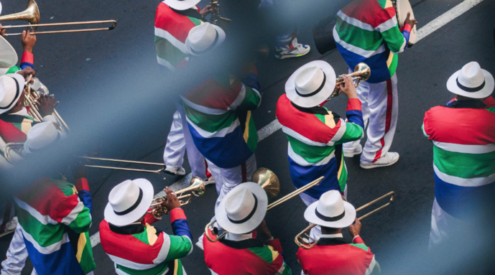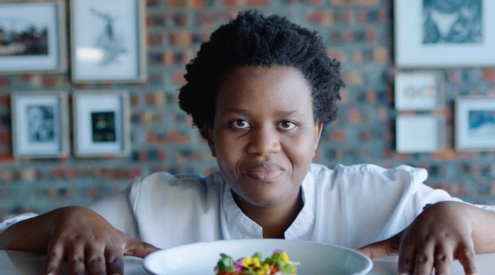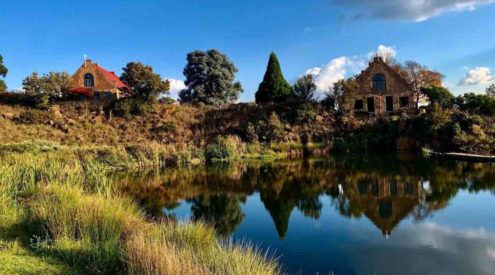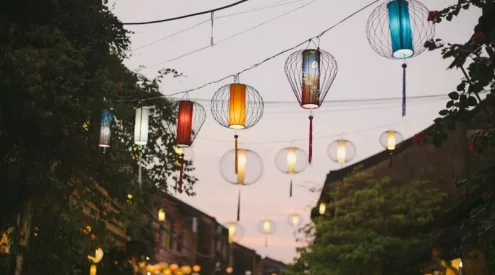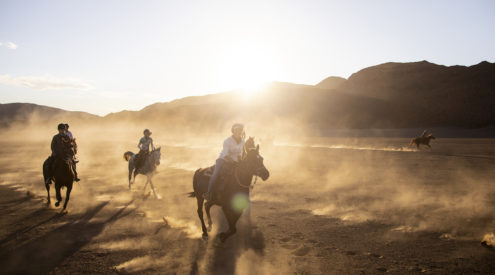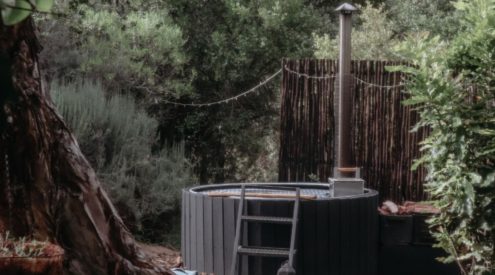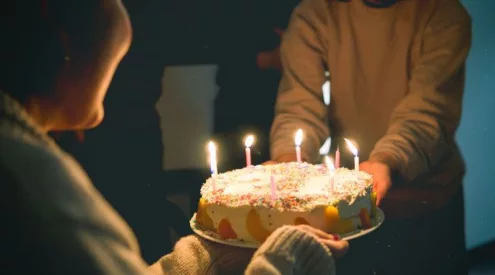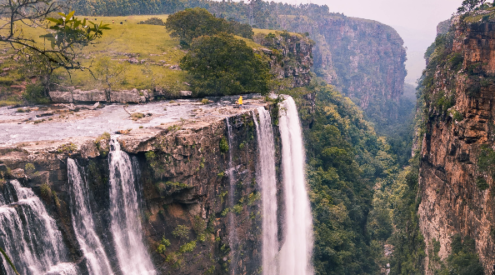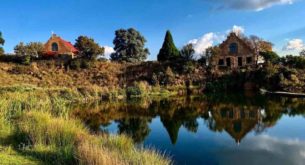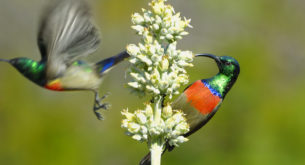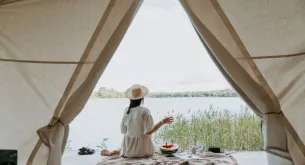We heard about an isolated village in the heart of the Cederberg mountain range that is so remote, it managed to avoid Apartheid altogether and is caught in an early 1900s time warp. These comments were confirmed as we neared Wupperthal passing horse and donkey drawn carts.
It was pay day when we arrived. All of the workers from the outlying settlements were making their way into the village centre (which consists of around twenty whitewashed thatched cottages) to collect money earned from harvesting rooibos. The indigenous plant grows wild in the area. If you are familiar with Botswana’s traditionally built, best female investigator, Mma Ramotswe, you will know that rooibos is used to make an aromatic herbal tea. It is delicious, high in antioxidants and caffeine free – the perfect bush brew! Mma Ramotswe believes that there is no problem so great that it cannot be solved with a cup of rooibos tea.
We parked Lula by the church and quickly realised that not many tourists descend the steep pass into Wupperthal’s valley. Everyone seemed extremely curious about our arrival. There were no helpful signs or tourist maps to be found and so, under the watchful gaze of Wupperthal’s intrigued residents, we began to explore. The community is predominantly Coloured and the main language spoken is Afrikaans. We eventually found someone who understood English and directed us down a dirt road to a small cafe which turned out to be a room in someone’s house. Posters on the wall provided information about Wupperthal.
The village was founded in 1830 by a German reverend and shoemaker called Johann Gottlieb Leipoldt who came to the Cape to teach the indigenous people about Christianity. Slavery was abolished in 1838 and many freed slaves from nearby farms sought refuge in Wupperthal. The mission grew rapidly despite strict rules: ‘obligatory attendance of church every Sunday, to hold no other beliefs, no magic, no swearing, no misuse of the name of God; foreswear all bitterness, scandalous talk, argument and lies; no strong drink and couples to be legally married.’ We could sense that there is still a strong moral code in the village with no need for Mma Ramotswe’s super-sleuth talents. The older inhabitants’ lined complexions resemble the surrounding craggy mountains and are evidence of noble lives spent toiling in the surrounding fields.
While sipping red bush tea and sampling the homemade chicken pie at the cafe, we were surprised to encounter a group of people from a German television company called ZDF. They were filming a documentary about the local shoe factory which Leipoldt started and is still in operation today. On our way to the shoe factory, we stopped to talk to some spirited schoolgirls. They only spoke Afrikaans, but language was no barrier with Bow Wow. His ‘shake hands’ trick went down a storm.
The shoe workshop is less like a factory and more like a humble cobblers with it’s broken windows, bare floorboards and peeling paint. The smell of kudu leather and quiet dexterous concentration hangs heavy in the air while the shoemakers laboriously handcraft traditional boots and shoes. It would be wonderful to keep these special skills and the tradition of Wupperthal shoes alive. While we were there we designed a new pair of sandals which will be ready soon. We will upload photographs and if you like them we will order more for the Vagabond Van online shop (coming soon). We think that Precious Ramotswe would approve.

